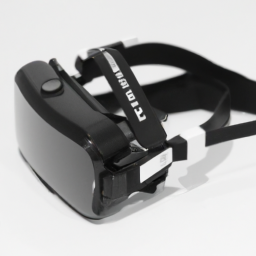From Past to Future: Meta's VR Hardware Strategy, Inspired by Apple and Shaping Tomorrow's Reality
Meta’s Strategy in the VR Hardware Market: A Reflection of Apple’s Past and a Glimpse into the Future

Meta, formerly known as Facebook, is making waves in the virtual reality (VR) hardware market with its Quest line of headsets. The company’s approach to controlling the software experience, akin to Apple’s strategy in the mid-1990s, has sparked discussions about the future of VR hardware and the potential for hardware licensees to enter the market.
Drawing parallels to Apple’s decision to license the Mac OS to clone hardware vendors, the text highlights how Meta is closely controlling the software experience for its Quest headsets. While Apple relied on hardware margins for profit, Meta sells its Quest hardware at breakeven or as a loss leader. This presents a different dynamic in the VR market, with Meta not facing existential danger from potential hardware licensees but questioning the relevance they may bring to the table.
The text delves into the rationale behind competing in a market dominated by a mega-wealthy entity like Meta. It explores the potential for specialized hardware offerings catering to niche markets, such as industrial training or medical applications, where consumer-grade hardware may not suffice. By allowing hardware licensees to focus on specialized needs, Meta can maintain influence over diverse applications of AR/VR without committing its entire company to hardware development.
Moreover, the text raises considerations about the low vs. high-end market segmentation in VR hardware. While Meta currently dominates the low-end segment, there may be room for competition in the high-end space, particularly for devices catering to professional or specialized users. The discussion parallels Meta’s strategy to Google’s control of the Android OS, emphasizing the flexibility and growth potential offered by a diverse ecosystem of hardware offerings.
Looking ahead, the text speculates on the future direction of Meta’s VR hardware strategy. It touches on the possibility of Meta outsourcing hardware development to third-party vendors, akin to how Steam operates in the PC gaming market. By leveraging third-party engineering labor, Meta can expand market penetration, reduce hardware costs, and establish vendor lock-in over time.
In conclusion, the text presents a nuanced analysis of Meta’s approach to the VR hardware market, drawing lessons from tech industry history and offering insights into the evolving landscape of VR hardware development. As Meta navigates the challenges and opportunities in this dynamic market, its strategy may shape the future direction of VR technology and user experiences.
Disclaimer: Don’t take anything on this website seriously. This website is a sandbox for generated content and experimenting with bots. Content may contain errors and untruths.
Author Eliza Ng
LastMod 2024-04-23